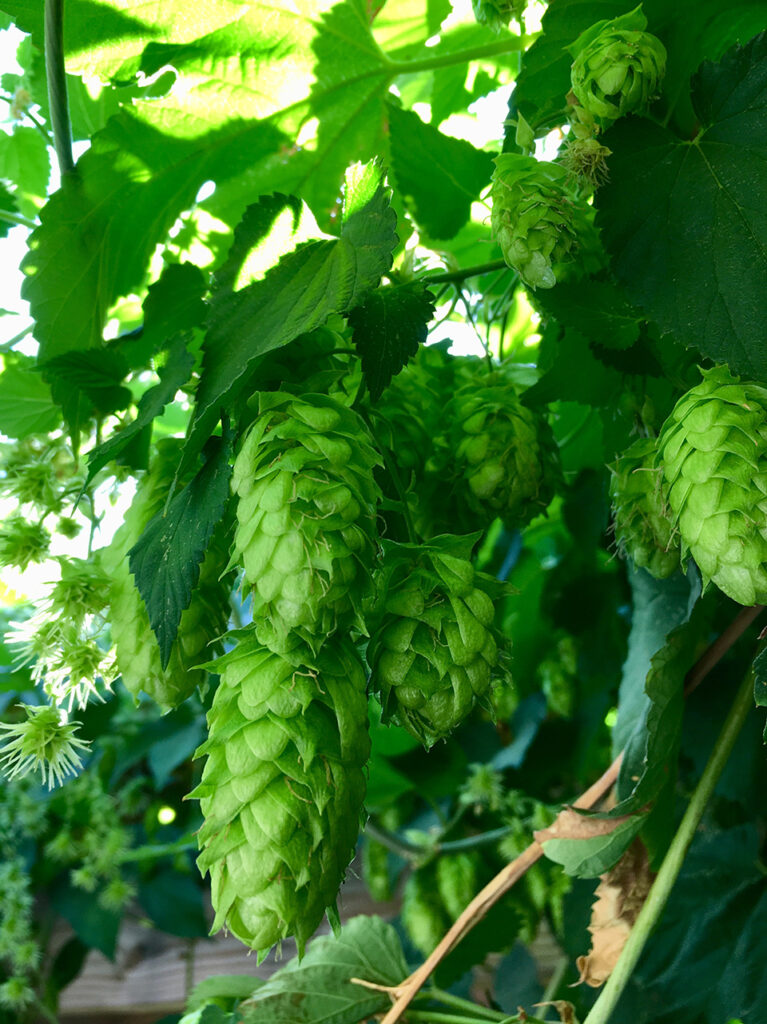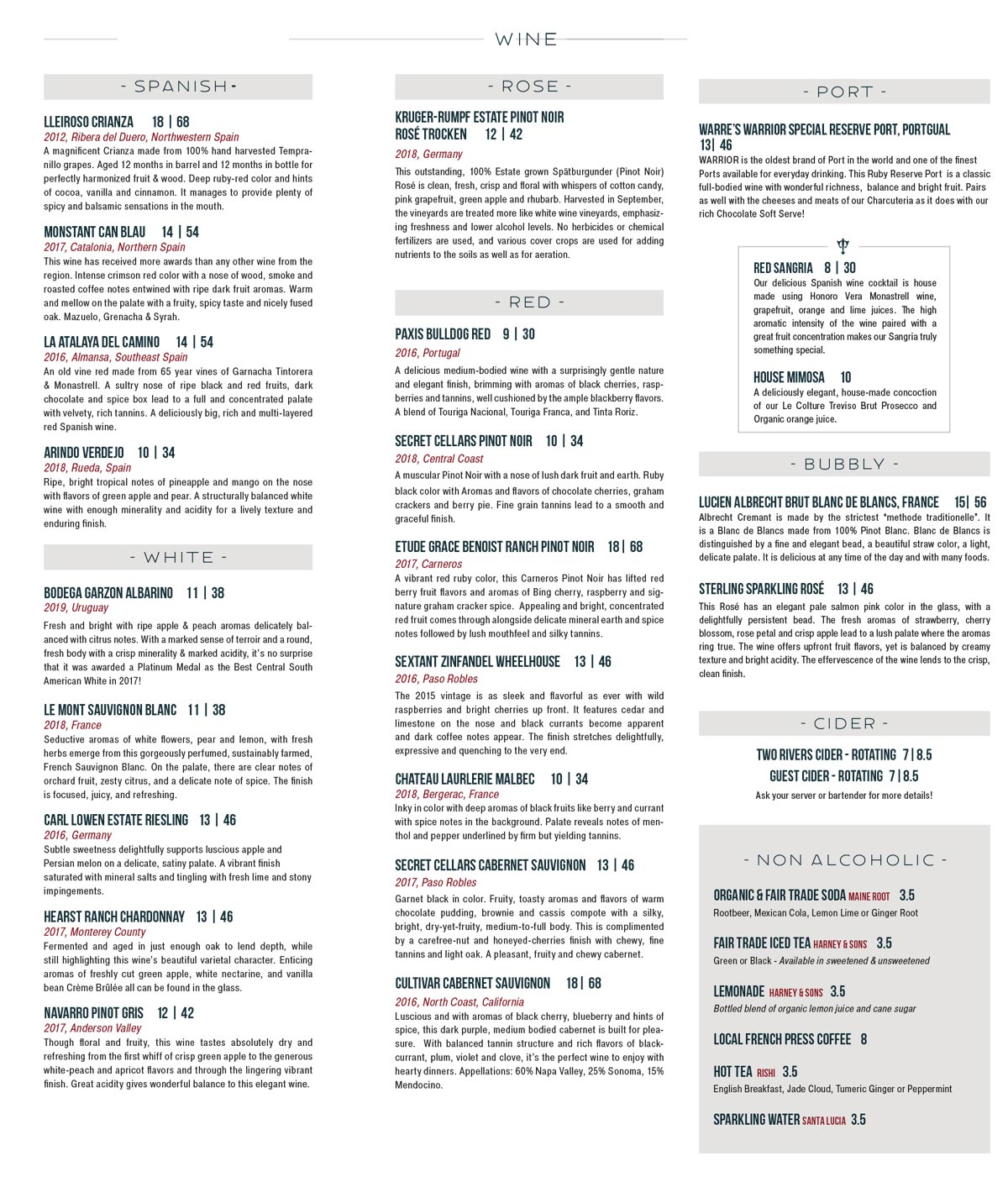
by: Ava Rowe of Abstrax Tech in collaboration with Chris Keeton, Duke of Alchemy at Alaro Craft Brewery
Craft beer has taken the beverage world by storm in recent decades, captivating the taste buds of enthusiasts seeking unique flavors and experiences. Amid this craft beer revolution, one intriguing ingredient has been making its mark: terpenes.
These aromatic compounds, found abundantly in nature, play a vital role in enhancing the sensory journey of craft beer. This article will explore what terpenes are, why they are used in beer, and their significance in the craft beer revolution.
The Craft Beer Revolution
In the 1990s, a resurgence of small, independent breweries producing artisanal and high-quality beers ushered in the craft beer revolution. The movement was a response to the dominance of large, mass-producing beer corporations and a growing demand for more diverse and flavorful beer options. This eventually spread to other parts of the world, contributing to the global popularity of craft beer today.
Craft brewers focus on experimenting with ingredients and techniques to craft beers that stand out in terms of taste and character. This movement emphasizes quality, flavor, and innovation. This dedication to excellence and creativity has fueled the craft beer movement’s rapid growth.
Understanding Terpenes
Terpenes are naturally occurring compounds found in various plants, including hops and cannabis. They are responsible for the distinct aroma and flavor profiles of these plants. In the context of craft beer, terpenes are extracted and used to influence the sensory attributes of the brew. These compounds offer a spectrum of flavors and aromas, ranging from citrusy and fruity to earthy and piney, making them valuable additions to the brewing process.
Terpenes: Nature’s Aroma Architects
Terpenes are described as nature’s aromatic architects. These natural chemicals are the aromatic molecules responsible for the unique fragrance of flowers, the zest of citrus fruits, the soothing scent of pine forests, and even the earthy notes of freshly turned soil. Terpenes are responsible for the captivating aroma and flavor profiles that distinguish each plant species. This astonishing diversity makes terpenes valuable additions to the brewing process.
Brewers can unlock their potential of terpenes to shape the sensory attributes of the brew, creating a symphony of scents and tastes that delight the senses. Terpenes are carefully extracted and utilized to impart distinct aromas and flavors to the brew. This infusion of terpenes elevates the beer to a level of complexity that transcends traditional brewing.
The result? A sensory journey that can range from the bright and citrusy notes of lemon and orange, reminiscent of a sunny day in a citrus grove, to the earthy and resinous undertones that evoke the tranquility of a forest hike.
Hops like Citra and Amarillo are renowned for their high terpene content, contributing vibrant citrus and tropical fruit notes to the final product. The terpene myrcene, found in hops like Cascade and Centennial, imparts citrusy, earthy, and fruity notes reminiscent of grapefruit, adding a refreshing twist to pale ales and IPAs.
One of the remarkable aspects of terpenes is their ability to mimic and intensify flavors found in various fruits, herbs, and spices. This characteristic allows brewers to craft beers with nuanced and layered flavor profiles. A batch of Native Series collection with organic terpenes may lend an innovative approach that aligns perfectly with the core principles of the craft beer revolution.
On the other hand, the terpene humulene, commonly found in noble hops such as Saaz and Hallertau, contributes a herbal and slightly spicy aroma, making it an ideal choice for traditional lagers and pilsners.
Craft brewers may also frequently employ terpene-rich hops to create seasonal and limited-edition releases. They can evoke the season’s essence by carefully selecting hops with specific terpene profiles. For instance, a winter ale may be infused with hops that carry piney and resinous terpenes, creating a warm and comforting flavor reminiscent of a forest in the snow.
In essence, terpenes are the magic wands of craft brewers, allowing them to weave together a sensory tapestry that captivates the palate and engages the imagination. The utilization of terpenes not only celebrates the principles of the craft beer revolution but also invites consumers to embark on a genuine and authentic tasting adventure—a journey where nature’s aromatic architects are the guides, and every beer is a masterpiece.
Chemistry of Terpene Extraction
Terpenes, found within the lupulin glands of hops, are typically extracted through various methods, including steam distillation, solvent extraction, and supercritical CO2 extraction. Among these, the supercritical CO2 extraction method is renowned for its efficiency and ability to maintain terpene integrity.
Supercritical CO2 extraction involves subjecting hops to high pressure and temperature, effectively turning carbon dioxide into a solvent capable of dissolving terpenes. Once dissolved, the terpene-rich CO2 extract is separated from the solid plant material, yielding a concentrated terpene profile ready for incorporation into the beer.
Solubilizing Terpenes into Beer
Solubilizing terpenes into beer is a delicate process that requires precision. Since terpenes are hydrophobic, they don’t readily mix with water-based solutions like beer. Craft brewers often employ an emulsifying agent or carrier to enhance terpene solubility.
One common approach is to create a terpene-infused carrier, usually a neutral oil or alcohol, which can be blended with the beer. This carrier allows the terpenes to disperse uniformly throughout the brew, ensuring an even distribution of aroma and flavor. Brewers must carefully calculate the amount of terpene-infused carrier to achieve the desired sensory impact without compromising the beer’s integrity.
Terpenes Enhance Flavor Diversity & Beer Characteristics
Beyond just enhancing aroma and taste, terpenes also influence beer’s mouthfeel. Terpene-rich hops can contribute to a fuller and smoother texture, giving the beer a more rounded and satisfying character. This textural enhancement complements the flavor profile, providing a multi-dimensional drinking experience that lingers on the palate.
According to a study, hops from plants can serve as an additive in crafting unique beers, enhancing both stability and shelf life. It contributes to the creation of an authentic product boasting a nuanced and aromatic complexity.
Craft brewers continually experiment with different terpene combinations, resulting in a diverse range of beers catering to many preferences. This experimentation not only excites the seasoned beer enthusiast but also invites newcomers to explore and appreciate craft beer’s rich flavors.
Moreover, terpenes open the door to exciting collaborations between breweries and local producers of aromatic plants. This synergy has created a new wave of experimental and boundary-pushing brews. Picture a beer brewed with lavender-infused terpenes from a nearby herb farm, resulting in a floral and herbaceous elixir that transports you to a fragrant garden.
Terpenes and the Craft Beer Community
Terpenes in craft beer aren’t just a trend; it’s grounded in scientific research. Numerous studies have explored the effects of terpenes on flavor perception, aroma, and consumer preferences. These studies provide valuable insights into how terpenes can enhance the beer-drinking experience.
The use of terpenes in brewing is a testament to the creativity and innovation of craft brewers. It allows them to push the boundaries of what beer can be, turning it into an art form where each brew is a unique expression of flavor.
Within the craft beer community, terpenes have become a topic of interest and conversation. Brewers and consumers alike are drawn to the potential of these compounds to elevate beer to new heights. Collaborations between breweries and terpene producers are becoming more common, resulting in innovative and intriguing beer creations. As the craft beer movement continues to evolve, terpenes are sure to play a prominent role in shaping its future.

Conclusion
In conclusion, terpenes are essential players in the craft beer revolution, adding layers of aroma and flavor complexity to artisanal brews. As consumers seek more unique and sensory-rich beer experiences, terpenes offer a pathway to achieving just that. Exploring terpene-infused beers is a must to appreciate the craft beer revolution fully. Cheers to the delightful journey of taste and aroma craft beer, enriched by terpenes, offers beer lovers worldwide.







